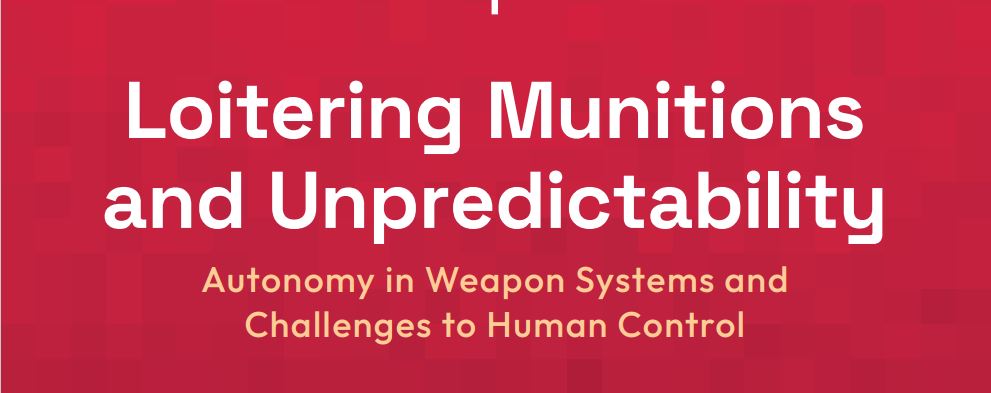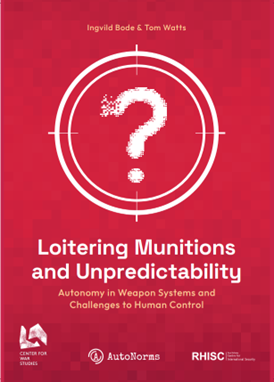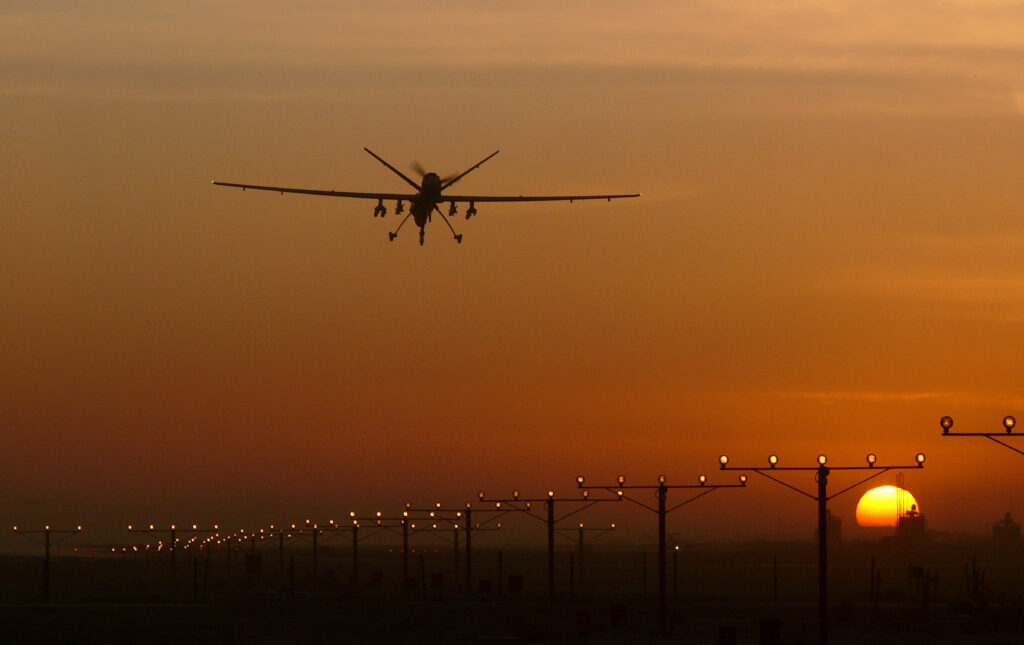The New AutoPractices Project: Toward Governing AI Technologies in Military Decision-Making from the Bottom Up

On 1 June 2024, the AutoNorms team started a new policy-oriented project called AutoPractices. The purpose of the AutoPractices project is to initiate and accompany a process of social innovation to govern autonomous and AI technologies (AIT) in the military domain from the bottom up. The project aims to do this by addressing the practices […]
‘Traditional Values’: The Russian Leadership’s Narrative about Generative AI

In February 2024, Vladimir Putin approved a new version of Russia’s national artificial intelligence (AI) development strategy, initially adopted in October 2019. One of the updates included is a list of challenges to Russia’s AI development, which mention “the decision to restrict access to AI technologies, caused by unfair competition on the part of unfriendly […]
Loitering Munitions Report Online Launch Event

On 8th December 2023 13.00-14.15 (CET)/12.00-13.15 (GMT), an expert panel (including Laura Bruun, Stockholm International Peace Research Institute) will discuss the major findings of the “Loitering Munitions and Unpredictability: Autonomy in Weapon Systems and Challenges to Human Control” report published earlier this year. You can register to attend this online event here. Co-authored by Dr. […]
Five Questions We Often Get Asked About AI in Weapon Systems and Our Answers

By Anna Nadibaidze and Ingvild Bode The ongoing integration of artificial intelligence (AI) and autonomous technologies in weapon systems raises many questions across a variety of fields, including ethics, law, philosophy, and international security. As part of the AutoNorms project, we have contributed to many of these discussions over the past three years, including through […]
Loitering Munitions and Unpredictability: Autonomy in Weapon Systems and Challenges to Human Control

Download the report here By Ingvild Bode and Tom Watts A new report published by the Center for War Studies, University of Southern Denmark and the Royal Holloway Centre for International Security highlights the immediate need to regulate autonomous weapon systems, or ‘killer robots’ as they are colloquially called. Written by Dr. Ingvild Bode and Dr. […]
Consequences of Using AI-Based Decision-Making Support Systems for Affected Populations

The following essay builds on remarks delivered by Ingvild Bode as part of the Expert Workshop “AI and Related Technologies in Military Decision-Making on the Use of Force”, organised by the International Committee of the Red Cross (ICRC) & Geneva Academy Joint Initiative on the Digitalization of Armed Conflict on 8 November 2022. I want […]
Can Track II Dialogues be the New “Ping-Pong” Diplomacy to Thaw the Sino-US Relationship on Military AI?

China and the US find themselves increasingly enmeshed in a deteriorating relationship as the two countries contest for primacy across many fields. Both Beijing and Washington view technological leadership, especially an edge in artificial intelligence (AI), as vital to gaining an upper-hand in this intensified power contest. As the two rivals scale up investment in […]
The New Fog of War: Algorithms, Computer Vision, and Weapon Systems

War is the realm of uncertainty; three quarters of the factors on which action in war is based are wrapped in a fog of greater or lesser uncertainty. A sensitive and discriminating judgment is called for; a skilled intelligence to scent out the truth. — Carl von Clausewitz (1832) [1873] The visual dimension is one of […]
Shortening the Kill Chain with Artificial Intelligence

This post has been guest written by Jennifer Rooke. Jennifer’s author information has been included at the end of this post. In a speech at the Air Force Association’s annual Air, Space & Cyberspace Conference held on 20 September 2021, US Secretary of the Air Force Frank Kendall stated (at 20:50 in the embedded video) […]
Drones in Afghanistan: Not a Technological “Silver Bullet”

[A shorter version of this piece was published in the German-language ct Magazin für Computertechnik in September 2021, Ingvild Bode & Tom Watts] The United States and its NATO partners have ignominiously withdrawn from Afghanistan. One of this war’s many legacies will be the use of remotely piloted aircraft – colloquially referred to as drones – to conduct air […]



